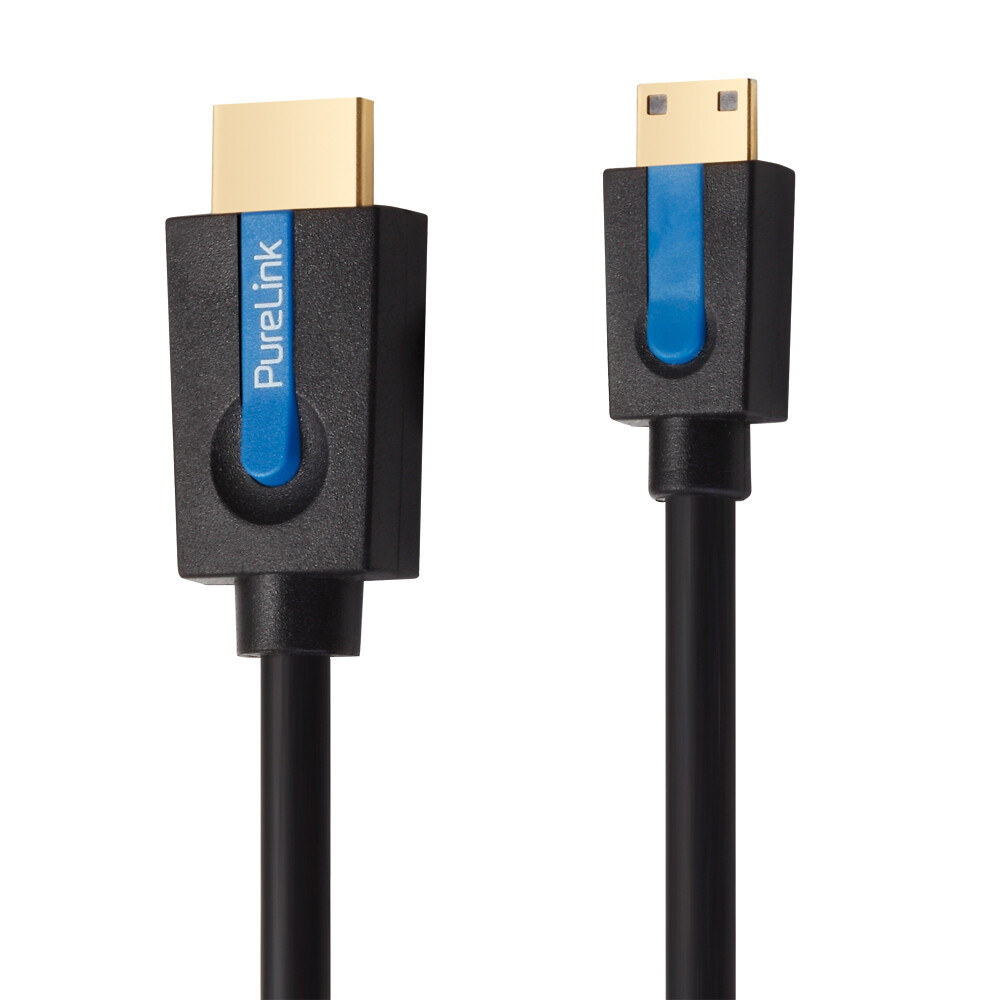







£13.99*
Prices incl. VAT.
Expected in 5-8 working days
Shipping from £8.99 Product number: 1920389


visunext Services
Product information
Professional Quality With a PureLink product you always opt for first-class professional quality. PureLink HDMI cables meet the challenge to transfer perfectly even at the highest data rate pictures and sound. Our HDMI cables are optimized to the requirements of HDTV , so no pixel errors are to be expected. High quality materials and triple shielding A high-purity semiconductor technology and a triple shielding create in this PureLink cables, the best condition for an error - and interference-free signal transmission. The snug-fitting plugs are 24kt gold plated and thus ensure a perfect connection. The latest generation The high-quality PureLink HDMI cable Cinema Series comply with the latest HDMI specification , for as soon as there are new features or updates, they can be implemented immediately by PureLink . This cable conforms to the latest standard , HDMI High Speed with Ethernet Channel . The original names , such as HDMI 2.0 do not describe a new cable type and are therefore no longer allowed, but the cables of Cinema series meet the standards of this new standard . High Speed HDMI with Ethernet Channel The latest HDMI standard is a true all-rounder. The most important innovations are the extended bandwidth of 18 gigabytes per second and thus more achievable resolutions up to 4096x2160p at 60Hz as well as the first time to support up to 32 audio channels at 1536kHz . Furthermore, the new generation also natively supports the first 21:9 cinema format and offers a direct synchronization of video and audio stream. Enormously increased bandwidth The bandwidth of the previous HDMI 1.4 standard has been increased with this latest version 2.0 significantly from 10.2 to 18 gigabytes per second. This is of particular importance to the transfer meeting of extremely high-resolution video data at 60Hz refresh rate . The PureLink Cinema Series supports this new standard and is future-proof . HDMI Ethernet Channel The Ethernet channel on the HDMI cable is a new feature of the HDMI 1.4 standards. With the Ethernet Channel , IP -based entertainment devices such as TVs, set-top boxes and game consoles are used in the home network and can therefore be used also as the Internet , without requiring additional cabling is required. HDMI Audio Return Channel The also ARC or Audio Return Channel named audio return channel , we replaced the Ethernet Channel another cable for home cinema use . The return channel sends the digital audio signal on demand via the HDMI cable back to the AV receiver. This saves the connection with a separate Toslink cable. Supports all 3D TV technologies The TV manufacturers use various technologies to create 3D content via HDMI to the TV play . The PureLink HDMI cable of Cinema series support all currently available 3D TV technologies . backward compatible This PureLink HDMI cable is backwards compatible with all previous HDMI versions . So you need not worry that support HDMI versions to be connected devices you have . Recommended Use Ideal for connecting two HDMI devices with HDMI-A ports. For example, PC, DVD, Blu-ray, Playstation3 , Playstation4 , Xbox360, Xbox One to LCD TV, LED TV, plasma, projector , projector . This cable supports all HDMI versions . Transmitting audio and video data Optimized for digital HDTV signals - FullHD 1080p, 1440p , 1600p , 2160p/60Hz , 4Kx2K . With Deep Color and x.v.Color . Transfers all data from the HDMI CEC protocol such as , HDCP and EDID . Transfers all digital audio formats such as 7.1 , DTS-HD Mater Audio , Dolby TrueHD, Dolby Digital, DTS, DVD Audio , LPCM , SACD, MPCM . Up to 32 channels of audio at 1536 kHz.
Technical data
| Name | PureLink HDMI / Mini HDMI Cable - Cinema Series 3m |
|---|---|
| Article number | 1920389 |
| GTIN/EAN | 4260134122078 |
| Manufacturer SKU | CS1100-030 |
| Model name | CS1100-030 |
| Brand | Purelink |
| Product Type | HDMI cable |
| Inputs | 1x HDMI |
| Outputs | 1x Mini-HDMI |
| Cable length | 3 m |
| Colour | Black |
| Condition | New |
| Warranty | 24 Month |
| Warranty type | Bringin service Service and support information |
Product safety
| Person responsible for the EU |
|---|
| PureLink GmbH |
| Von-Liebig-Str. 10 |
| 48432 Rheine |
| Germany |
| info@purelink.de |



